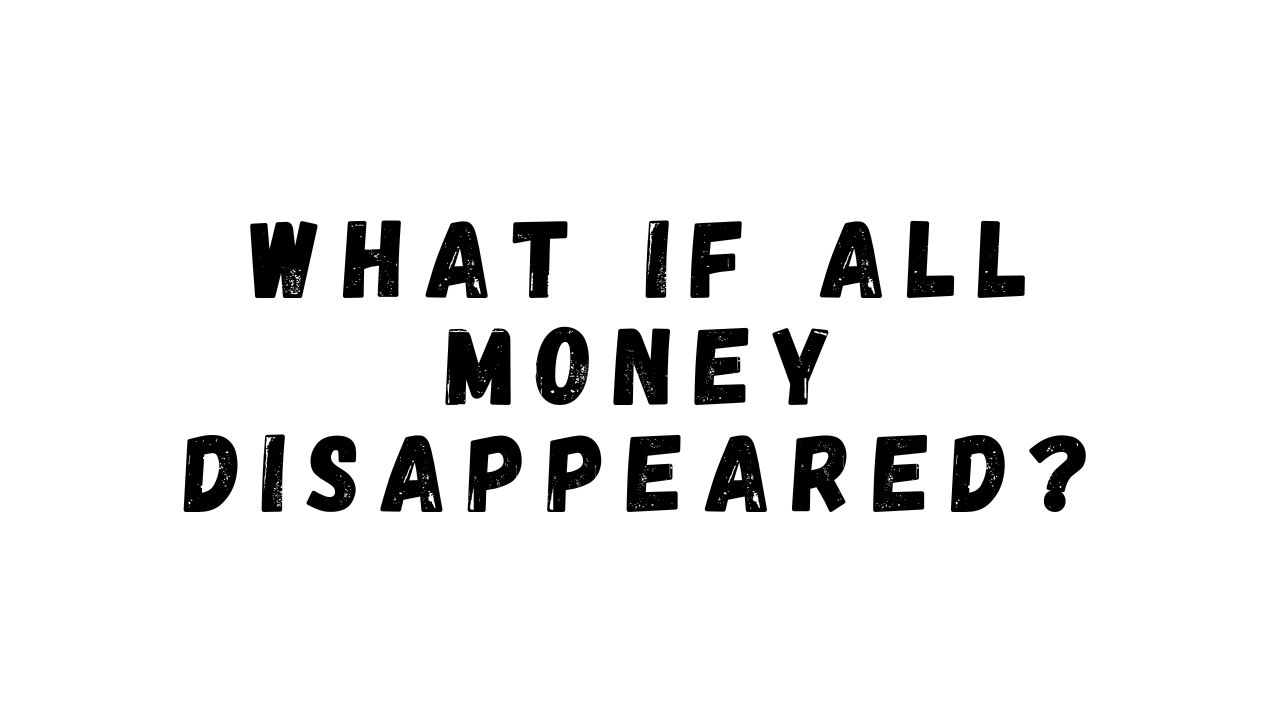Shravan sat on his porch, enjoying the cool evening breeze. It had been a peaceful day, and he liked the quiet moments before the night set in. He had his earphones on, listening to his favourite podcast on Spotify.
While his mind was occupied, his eyes wandered around. Something felt odd about the wallet sitting next to him. It looked lighter than usual.
He opened it, and to his surprise, there was no money inside. “That’s strange,” he thought. But Shravan shrugged it off. Maybe he had spent it all earlier.
The next morning, Shravan walked to the market. He needed to buy some vegetables for dinner.
He took out his wallet when he approached the first stall. But now it was completely empty. Even his bank cards were gone. He checked his pockets, but nothing.
The vendor stood silently, not asking for money. Shravan was confused. “How do I pay you?” he asked.
The vendor sighed and said, “There’s no need for money anymore. It’s gone. Everything’s different now.”
Shravan blinked in disbelief. “Gone? What do you mean?”
“No one knows,” the vendor replied. “But money just…vanished.”

A Day Later – Bartering Begins.
The next day, Shravan noticed people in the village trading things instead of buying them. One family gave milk in exchange for vegetables. Another offered homemade bread for a bag of rice. It was as if money had disappeared—like it never existed. Everyone was relying on what they had to get what they needed.
Shravan felt uneasy. He didn’t have much to trade. His family had some old clothes and a few tools, but nothing valuable. And whatever was valuable was needed by him. How would they fulfill their needs now?
By the afternoon, the market was busy again, but in a new way. People exchanged items, hoping to make fair trades. It felt strange. All banks across the globe had shut down. The world had changed overnight, and Shravan wasn’t sure how to adjust.
A Week Later – Scarcity Hits.
A week passed, and things grew harder. With no money, shops couldn’t restock. Factories stopped producing goods because there was no way to pay workers. Shravan noticed the shelves in the market becoming emptier each day.
The once richer section of society was now equal to the middle-class masses. They were initially at an advantage, having access to large stocks of food and other supplies. But they soon ran out of the reserves.
Shravan’s family started rationing food. They had to make do with what they had, as there was no telling when they would get more. The village seemed quieter now, and people were growing worried.
He saw fewer people trading and more people walking around, trying to figure out what to do. The simplicity of life without money was starting to reveal its challenges.
A Month Later – Survival Mode.
After a month, life had changed completely. Shravan’s family had planted a small vegetable garden in their backyard, hoping to grow enough food—not for sale, but for survival. People were no longer trading for luxuries—only essentials like food and water mattered now.
Shravan noticed that the village felt more connected but also more desperate. Some people began stealing from others just to survive. The peaceful village he had grown up in was starting to crumble under the pressure of living without money.
One day, Shravan walked through the now-empty market. The few vendors who remained were only trading the most basic items. People couldn’t afford to give away much anymore. The world felt like it had slowed down.
Two Months Later – A New System Emerges.
Two months in, the village realized they needed to organize themselves. Without money, they had to depend on skills and work to get what they needed. The village leaders gathered everyone and suggested a system where people would trade labor for goods.
Farmers would trade their crops for carpenters’ help. Tailors would make clothes in exchange for food. Shravan’s father, who knew carpentry, became essential in helping families build things they needed. Shravan helped him, learning to trade work for supplies.
It was a hard adjustment, but slowly, the village adapted. People worked together, sharing what little they had. Life without money wasn’t easy, but they had found a way to survive.
Conclusion – Life Without Money.
Shravan never imagined a world without money, but now he was living in it. In some ways, people grew closer, helping each other in ways they hadn’t before. But in many ways, life became harder. Factories shut down, trade between cities slowed, and survival depended on the skills people had.
Shravan realized that while money had its flaws, it made life easier. Once it disappeared, the world had to find new ways to function. It wasn’t perfect, but for now, they had to make the best of what they had.
Recommended watching:
If you liked this post, you’d also like:
- WHAT IF THERE IS NO ELECTRICITY FOR A MONTH?
- WHAT IF THERE IS NO SOUND FOR A MONTH?
- WHAT IF SOMEONE IS FILMING YOU?
Names, characters, places, and incidents are the product of my imagination, and any resemblance to actual events or persons is entirely coincidental. || Contents of this story should not be reproduced in any manner without permission.
1 Comment
Sushanth · October 13, 2024 at
Nice praneeth 👌